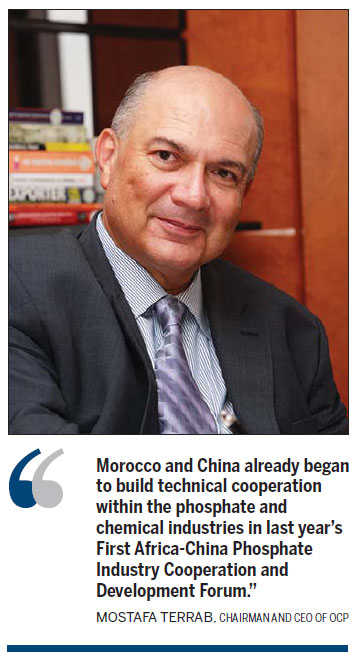Morocco's phosphates enhance food safety
Founded in 1920, OCP has become the world's largest exporter of phosphate rock and one of the world's largest fertilizer producers. OCP's 2020 vision is to increase production capacity to help feed the world's rapidly growing population.

"Our goal is to maintain our position as the world's leading phosphate producer," says OCP Chairman and CEO Mostafa Terrab.
"We are increasing our capacity across the phosphate value chain by expanding our phosphate rock production by 20 million tons to reach 50 million tons by 2020," he explains.
"We are also constructing two slurry pipelines to replace more expensive rail transport, and increasing our fertilizer production capacity with 10 new integrated fertilizer production units."
OCP's $15 billion capital investment plan ($5 billion of which has already been invested) will enable the group to meet growing global demand.
To reduce the impact of seasonality, OCP is also expanding its traditional North American and European customer base, and exploring opportunities in China.
"Morocco has developed strong trade ties with China, and our bilateral trade reached $3.7 billion in 2012," says Terrab.
"However, Morocco's trade deficit with China reached $2.6 billion in the same year, and we need to address this. Morocco's phosphate industry can help start to rebalance the country's trade deficit with China."
Food security is a key issue for China.
Phosphate-based fertilizers play a key role in maintaining food production, and China currently accounts for over half of the world's phosphate market.
While China already has substantial domestic phosphate reserves, Terrab believes China should diversify its sources to ensure a steady and secure supply.
"Morocco has a wealth of high quality phosphate reserves, and OCP can deliver," he says.
As a reliable phosphate exporter to Asia, we look forward to further strengthening our presence in the Chinese market."
www.ocpgroup.ma
World Eye Reports provided the story
















